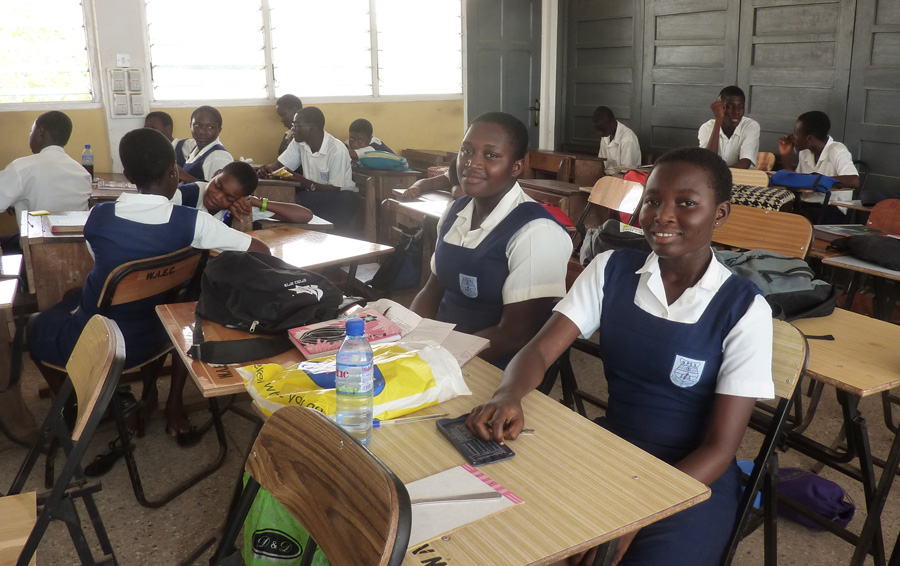Having grown up in Nigeria, I had witnessed first-hand the impact of a free basic education policy in my state and now in the city of Accra - Ghana, I could tell the difference.
From a Makafui in Ho, an Ayorkor at Bubuashie or an Ebo at Mankessim all hustling on the street in a bid to raise funds to complete their high school education, perhaps, all that will end now following the announcement by President Nana Akufo-Addo of a free senior high school education program. but one could only celebrate for so long, with the saddening knowledge that the critical question of how this great initiative will be funded is yet to be resolved.
But one could only celebrate for so long, with the saddening knowledge that the critical question of how this great initiative will be funded is yet to be resolved.
More so, the intense diversity of opinion it has raised in the country is one that but for a possible unanimous support from a majority NPP-led parliament, would have been a subject of national referendum: should the initiative be funded by the crude oil reserve investment known as the Ghana Heritage Fund (GHF), or by an adjustment of government expenditures on other sectors?
The country’s policy think tank, IMANI Ghana in a recent release has it that the program would demand a whopping US$600 million annually, a figure that far outweighs the GHF whose closing balance last year was valued at US$277 million with a 2.99% returns on the investment.
Many across various sectors have supported or opposed the decision to use the fund for the project, from the major opposition party - National Democratic Congress (NDC), students community among others.
But the chief argument against using the fund has been the Petroleum Revenue Management Act (Act 815) proponents, such as the Institute for Fiscal Studies (IFS), claiming that the Ghana Petroleum Funds, which include the Stabilization Fund and the Heritage Fund, have too high opportunity costs as their returns are next to nothing.
Obviously, there is the point that facilitating such a capital intensive agenda requires a fund pool that must cut-across not just the proposed Heritage fund but also government expense priorities.
However, having experienced the transformative power of education, at least to some extent, and having witnessed same in the lives and stories of countless others around the world such as was the case in Western Nigeria following the Obafemi Awolowo free and compulsory education policy and the Chinese example which has provided a platform for its rise to global economic leadership stature, one could only hope that the nation of Ghana and its leaders across all political boundaries would rally behind their President on this.
It would be to the sheer detriment of country’s future if anyone tried to underestimate the potential in science and technology, entrepreneurship, etc., of a child whom by this program would get a high school education and perhaps a chance for a college or higher education.
For we have learnt from the numerous cases of youth violence across the globe that, a nation bleeds for every child that is denied the first ladder to opportunity: a quality basic education. Â Â





